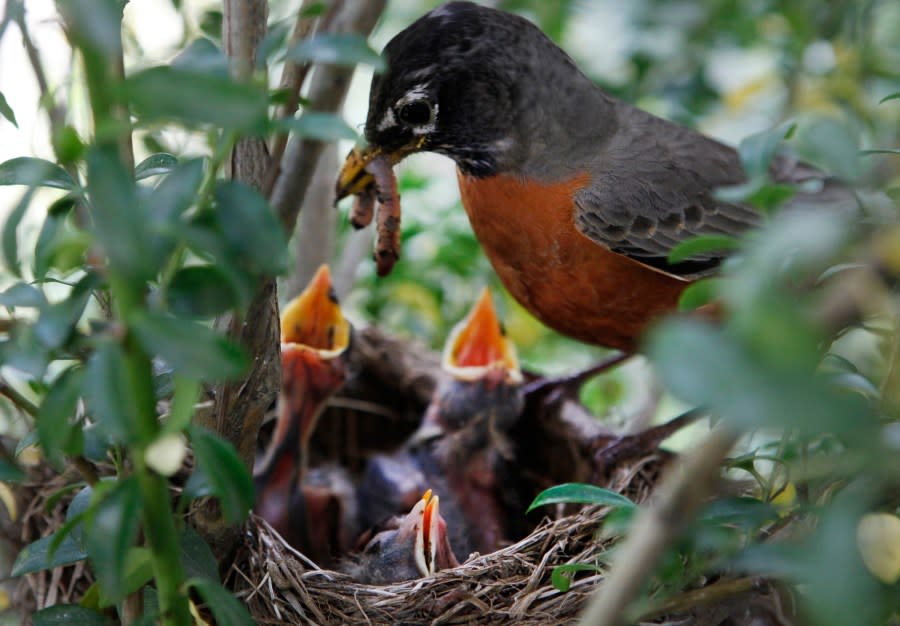DEC advises New Yorkers to leave baby animals alone

NEW YORK STATE (WETM) — The best way to help a young animal you find in the wild is to leave it alone.
Now that it’s spring, you might find baby birds, deer, or other animals in your yard. The New York State Department of Environmental Conservation (DEC) is reminding you to leave these young animals alone, even if you don’t see their parents nearby.
“While some might think these baby animals need assistance, human interactions with wildlife typically do more harm than good,” said DEC Interim Commissioner Sean Mahar. “Please remember: if you care, leave it there”
According to the DEC, animals like deer and birds rarely abandon their young. Most of the time, if you find a fawn or baby bird alone, it’s because the parent hid it there. Animals often place their young in a specific location while they collect food to keep their babies hidden from predators. They should be left alone in most cases, and if you want to help, the DEC recommends keeping your cats indoors and your dogs away from young animals.
Pennsylvania snake season: what to watch out for, how to be safe
Baby birds start their first two weeks of life as nestlings, according to the DEC. Nestlings can have closed eyes, can be featherless, and will not leave the nest. Nestlings become fledglings after they outgrow the nest. Fledglings will have feathers and start to flap their wings and learn to fly. If you find a baby bird with full feathers on the ground, leave it be; the parents are keeping an eye on their fledgling.
If you find a baby bird that’s too young to be out of the nest, you can gently place it back in the nest while standing below the nest so the other babies don’t hop out. If you can’t easily and safely return a nestling back to its nest, call a wildlife rehabilitator and don’t approach.
Fawns should always be left alone, and humans should never pick them up. Fawns are born in late May and early June, and they spend their time as newborns laying still in tall grass, leaf litter, or barely hidden. A fawn’s coloring and ability to stay still helps it stay safe when it’s particularly vulnerable to predators as a newborn. Does only return to their babies to nurse them during the beginning of their lives. If a doe notices a human by her baby, she might delay nursing the fawn.
Watkins Glen State Park Gorge Trail now open
If you find an injured animal or a baby animal that appears to be orphaned, call a professional. Trained and licensed wildlife rehabilitators are the only people who are legally allowed to receive and treat distressed wildlife, and they’re the only ones who have the correct resources.
Additionally, the DEC is reminding the public not to consider young wild animals as pets. People may mean well by taking wildlife into their homes, but wild animals are not suited to live indoors and often die soon after being “rescued.” These animals might also be carrying diseases that can be transmitted to humans.
While you shouldn’t be touching any wild animals, you especially shouldn’t handle raccoons, foxes, bats, or skunks due to an increased risk of rabies. If you see animals that appear sick or are acting abnormally, contact the DEC right away.
For more information about what to do if you find wildlife, visit the DEC’s website.
Copyright 2024 Nexstar Media, Inc. All rights reserved. This material may not be published, broadcast, rewritten, or redistributed.
For the latest news, weather, sports, and streaming video, head to WETM - MyTwinTiers.com.

